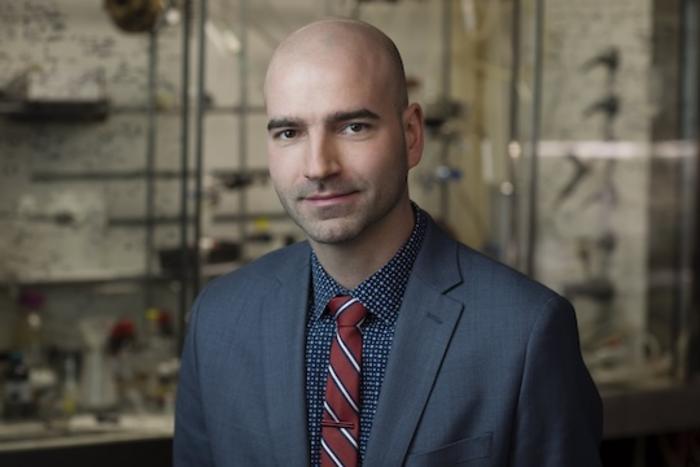Rice University’s Department of Chemistry will soon welcome David Sarlah, who will contribute to the university’s cancer research efforts when he joins the faculty on July 1 as a professor, backed by a $4 million recruitment grant from the Cancer Prevention and Research Institute of Texas (CPRIT).

Credit: Photo by L. Brian Stauffer.
Rice University’s Department of Chemistry will soon welcome David Sarlah, who will contribute to the university’s cancer research efforts when he joins the faculty on July 1 as a professor, backed by a $4 million recruitment grant from the Cancer Prevention and Research Institute of Texas (CPRIT).
The annual CPRIT grants, announced Feb. 21 and totaling nearly $100 million, aim to attract top cancer researchers across the nation to Texas institutions. This year’s grants, a mix of academic research and prevention projects, represent the largest public state investment in cancer research in the United States, according to CPRIT.
“Rice is renowned for its research excellence across all sciences, including chemistry,” Sarlah said. “I’m looking forward to joining the team and contributing to strengthening the department further.”
Previously, Sarlah was a faculty member at the University of Illinois Urbana-Champaign, where he started in 2014. His research focuses on the synthesis of complex, biologically active natural products and the related development of new chemical methodologies. His work focuses on providing innovative solutions in organic synthesis, benefiting fields such as chemical biology, material science and medicine.
Sarlah’s lab is also dedicated to total synthesis, which involves replicating natural molecules in the lab. These molecules, found in plants and various organisms, are often used to create antibiotics or anti-cancer drugs. “Our main focus is on streamlining the production of these compounds in the laboratory, making them identical to those made in nature,” Sarlah said.
At Rice, Sarlah and his 12-member research team will explore new opportunities to create these molecules with a specific focus on cancer biology. “More than half of the molecules used in cancer therapy today are derived from nature, which resonates with our research well,” he said.
Rice’s proximity to the Texas Medical Center is another advantage, Sarlah said. “Our initial collaborations will be with the Baylor College of Medicine, MD Anderson Cancer Center, and Houston Methodist Research Institute. It will definitely be convenient to be located at the epicenter of biomedical research,” he said.
Sarlah received his undergraduate degree in chemistry from the University of Ljubljana in 2006 and his Ph.D. from the Scripps Research Institute in 2011. Following a postdoctoral stay at ETH Zürich, he joined the faculty at Illinois.
CPRIT was founded by the Texas Legislature and approved by voters in 2007. In 2019, Texas voters approved an additional $3 billion for CPRIT, bringing the total investment to $6 billion. To date, the agency has awarded over $3 billion in grants to Texas research institutions and organizations and has recruited 306 distinguished researchers to the state.
Discover more from Science
Subscribe to get the latest posts sent to your email.


